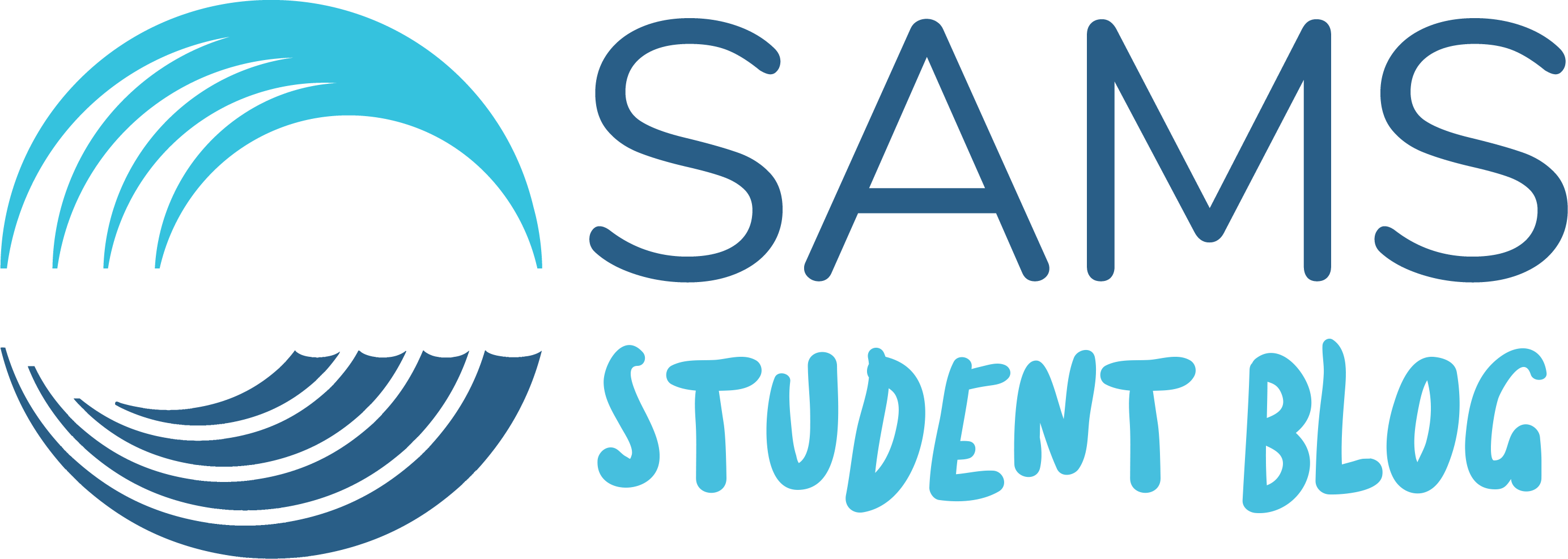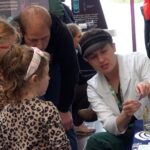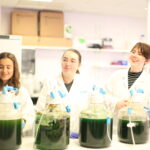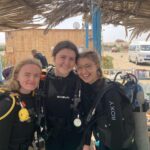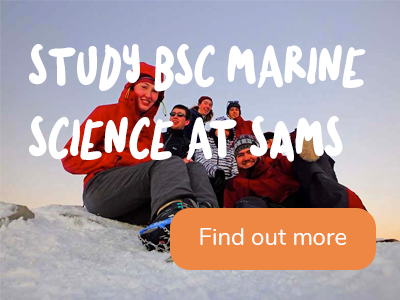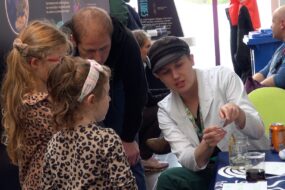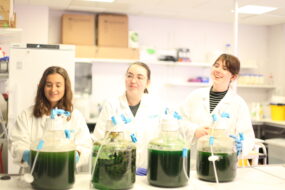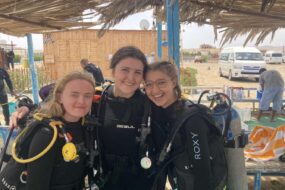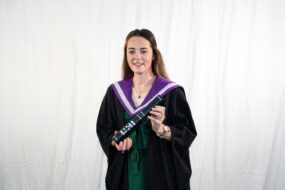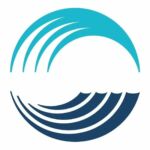By Darcie Anderson, 4th Year SAMS UHI Marine Science student
Each year at SAMS UHI, students take three modules per semester. Here is a breakdown of the six modules you will take in first year.
Four of the first-year courses are fundamentals, which are challenging enough for students who have taken the subjects before, but still allow people who are more unfamiliar with the subjects to get a solid introduction. As marine science is such a broad area of study, most students will be very familiar with some subjects, and far less familiar with other, which generally equalises workload for students. Even in subjects you are familiar with, these modules take an ocean focus, with assignments, lab work and fieldwork, allowing a far deeper understanding of the topics for students.
Note the assignments, field trips and labs listed here may be subject to change, however this blog aims to give an overall summary of what to expect during your first year at SAMS UHI.
Semester 1:
Fundamentals of Marine Geology
This module is often a first-year favourite, for its field trip, interesting content and ever-enthusiastic lecturer, John Howe. This module introduces students to key aspects of marine geology, including earths geologic history and structure, tectonic theory, magmatic differentiation, sedimentology, structural geography, stratigraphy, geomorphology, as well as rock structure, minerals and formation. The module leader, Professor John Howe has been teaching at SAMS since 1999, with a career studying marine geomorphology, utilising equipment such as multi-beam sonar for mapping, palaeoceanography, and climate change research.
The 60% continuous assessment portion of this module includes a rock identification exam, and an essay on the geological evolution of Argyll, which students write after a field trip to the Isle of Kerrera. The remaining 40% of the grade for this module comes from the end of semester exam.
Introduction to Mathematics and Data Science
This module introduces the key mathematical and statistical techniques needed by scientists from functions, trigonometry, matrices, calculus, probabilities, and data displays; to the introduction of a key software for data analysis; R. This module is led by Dr Neil Fraser, a mathematical physicist who studies dynamical fluid systems such as large-scale circulation in the North Atlantic
Continuous assessments in this module, which makes up 60% of the total grade, tests ability to process, analyse and display data in Excel, and perform statistical analysis in R. The remaining 40% is assessed in an end of semester exam.
Fundamentals of Marine Chemistry
The Fundamentals of Marine Chemistry module is led by Dr Richard Abell, an analytical biogeochemist, working with trace metals, and the carbon cycle. This module introduces fundamental chemistry principles, such as atoms and bonding, molecular structure, thermodynamics, kinetics, organic chemistry, and their relevance to ocean chemistry. A key component is practical work building skills and chemistry knowledge to prepare you for a career in Marine Science.
An end of semester exam comprises 40% of the total grade, with 60% gained from continuous assessments throughout the semester.
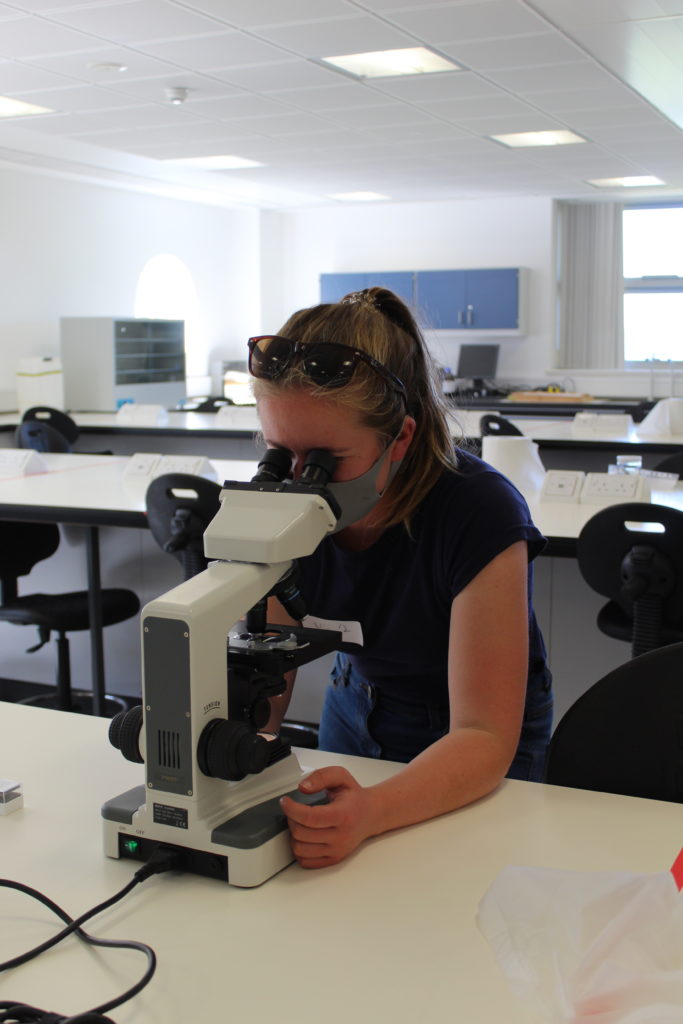
Semester 2
Fundamentals of Marine Biology
The fundamentals of marine biology goes through key biology topics, such as cellular biology, genetics, evolutionary biology, taxonomy, developmental biology, and ecology, with a strong ocean focus. Dr William Goodall-Copestake is the module leader for this module, and draws on experience studying species, such as gelatinous zooplankton, skates and rays, and their ecology through genetic techniques to support conservation and technological innovation.
This module, like most others, is broken down to its continuous assessment portion (60% of final grade) and an end of semester exam (40% of final grade). Continuous assessments in this module each account for 20% of the total grade, and include a protein-assay lab report, a report on phytoplankton identification and an oral presentation on any marine biology topic. An afternoon studying animals in the bay and a coastal zonation survey are always enjoyable, non-assessed elements of this module.
Fundamentals of Marine Physics
Fundamentals of Marine Physics is led by Dr Marie Porter, who studies mixing in shelf edge and shelf sea environments using robotic platforms. This module teaches fundamental tools of physics, and how they apply to ocean circulation, such as the fundamentals of ocean currents, their driving physical forces and the energy behind these forces, types of ocean waves and their relation to acoustic and optical waves, and the properties of matter, especially of seawater.
Continuous assessments comprise 60% of the total grade, whereas exams comprise the remaining 40%. Continuous assessments may include a report designing an oceanographic mooring to study ocean currents, creating and presenting a scientific poster, and a series of weekly tests.
Marine Field Course
This module is an all-time favourite of many students and rightfully so! It’s full of fieldwork and lab work. In this module, students spend a day on our research vessel, followed by a week in the lab, analysing all the samples collected. Students will then write up three of the studies in reports, each comprising 33% of the total grade of the module. These vary from year-to-year, however, often includes analysis of the physical and chemical seawater properties, identification of marine invertebrates from the sediment, identification of phytoplankton, geological analysis of the sea loch, and analysis of marine animals from trawls.
The module leader, Dr Chris Allen is the technical resource manager at SAMS, working with our research and enterprise teams, and is supported in teaching this module by many other scientists, such as Dr Richard Abell, Dr Callum Whyte, and Professor John Howe.
We hope this module overview has been helpful and look forward to welcoming you to SAMS for your first year of studies. If you have any more questions about these modules discussed, you can contact the module leaders via the information at the links attached.
Recent Post
Student Focus – Artemis Eales: MRes Marine
- 18 December 2024
- 6 min read
Student Focus – Evie Whyte, MSc Algal
- 9 May 2024
- 5 min read
Field Trip Reflection: A First-Year’s Experience of
- 2 May 2024
- 5 min read
